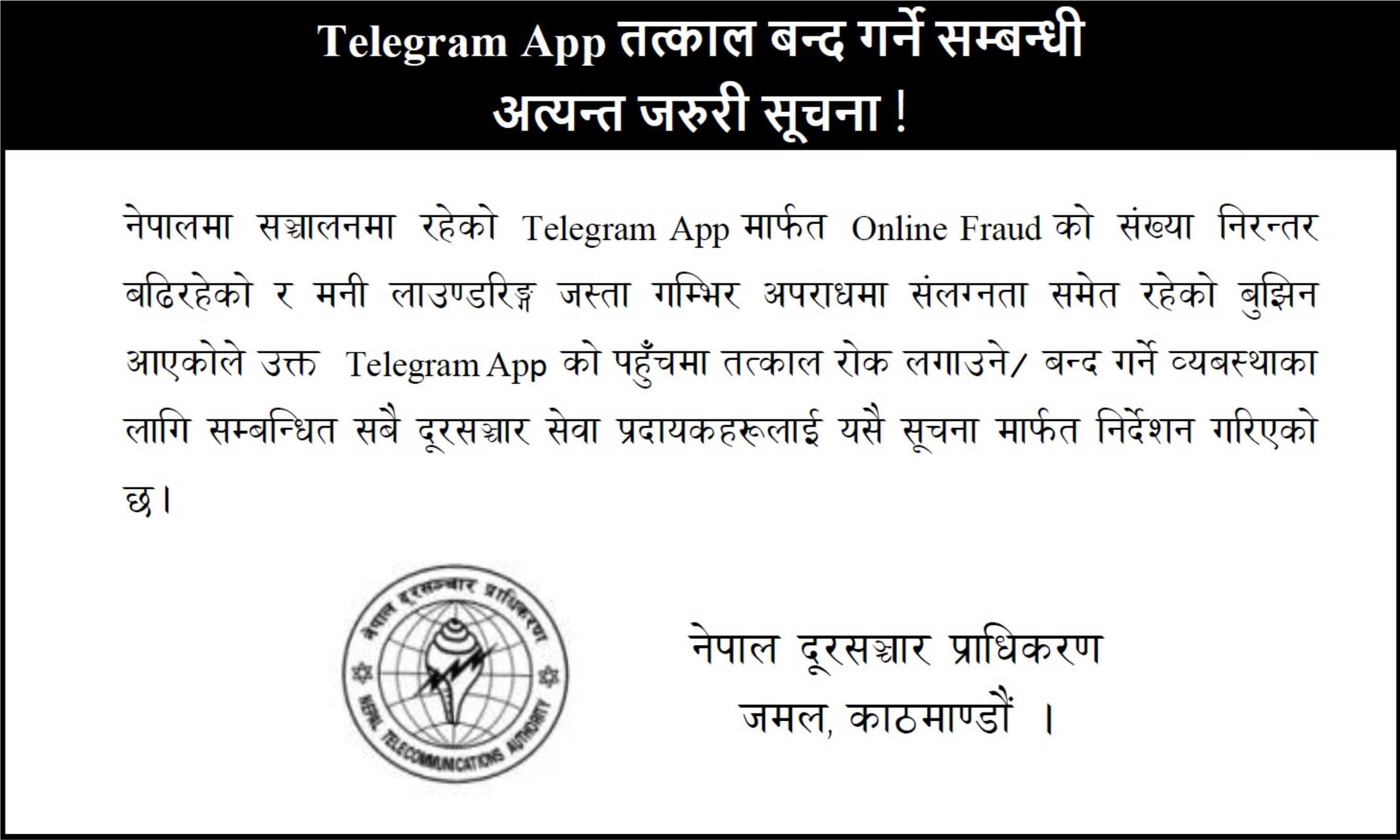Is Nepal’s Government Using Telegram Ban to Hide Asgar Ali’s F1Soft Cyber Disaster?
Nepal Shocks the Digital World: Telegram Banned Overnight Amid Explosive Fraud and Money Laundering Claims

The government of Nepal has ignited fierce debate and global attention after ordering the immediate nationwide ban of Telegram, the encrypted messaging platform popular for its privacy features and massive user base. Citing a surge in online fraud and suspected money laundering, Nepal’s telecom regulator issued a late-afternoon directive on July 18, commanding all internet and telecom service providers to block access to the app “with immediate effect.” The move, sudden and sweeping, has left millions of Nepali users cut off from a primary channel of communication—fueling concerns about digital rights, state overreach, and public safety.
For many Nepalis, Telegram was more than just another messaging app. Its robust encryption and sprawling group channels had made it a lifeline for communities ranging from students and activists to small businesses. But government officials and law enforcement allege that these very features have turned Telegram into a haven for scammers and illicit actors. While the Nepal Telecommunications Authority’s (NTA) notice did not detail case numbers, it referenced an “alarming” rise in cybercrimes involving Telegram, including serious offenses like money laundering and organized online fraud. The tipping point reportedly came after last year’s high-profile cyberattack on F1 Soft, a financial software platform crucial to Nepali banks, where police found Telegram at the heart of the hackers’ communication network.
The announcement was met with instant backlash online. Civil liberties advocates slammed the ban as “digital authoritarianism,” accusing authorities of punishing millions for the misdeeds of a few and bypassing transparent due process. “This is not just about stopping crime—this is about control,” said a Kathmandu-based tech lawyer, warning that arbitrary internet censorship could erode trust in both state institutions and digital commerce. Meanwhile, ordinary users flooded social media with messages of frustration and confusion, worried about losing access to study groups, business contacts, and support networks. “Telegram was our classroom, our market, our family group—all in one. What’s next?” lamented Aastha Sharma, a university student in Pokhara.
Yet, some segments of the public have cautiously welcomed the crackdown, citing genuine fears about growing cybercrime and the difficulty of tracking illegal activities on encrypted platforms. The NTA’s move mirrors similar bans by governments elsewhere: Vietnam blocked Telegram in May over alleged dissemination of “antistate documents,” and several other countries have cited national security concerns. However, critics point out that Nepal’s ban comes with a conspicuous lack of data—no figures were given on fraud cases, and no plan for addressing underlying digital vulnerabilities was shared. Such gaps have only heightened skepticism about the government’s motives and the ban’s effectiveness.

Internationally, the debate around Telegram has intensified. The app’s Russian-born founder, Pavel Durov, recently made headlines after being detained in France on charges related to Telegram’s failure to curb extremist content. With over a billion users worldwide, Telegram’s battles with regulators are reshaping how nations navigate the murky intersection of privacy, security, and free expression in the digital age.
In Nepal, the ban arrives just months after a similar controversy surrounding TikTok—another wildly popular platform that was blocked and then reinstated only after its parent company agreed to stricter government oversight. Many now wonder whether these high-profile digital crackdowns signal a new era of online censorship, or simply a desperate attempt to rein in crime amid fast-evolving technologies. As Nepalis search for alternatives, and as digital entrepreneurs weigh the risks of investing in a shifting regulatory landscape, one question lingers: Who gets to decide the balance between safety and freedom in the internet age—and at what cost?
Many speculate that Nepal’s sudden ban on Telegram is not merely a cybersecurity measure, but a calculated attempt to overshadow the unresolved scandal surrounding F1Soft International — a company deeply intertwined with Prime Minister Oli’s advisor, Asgar Ali. Ali’s dual roles as government consultant and tech magnate have raised alarm bells for years, with critics accusing him of manipulating national IT policies for personal enrichment. From the mandatory push of eSewa through government platforms to the Ambition Guru school app mandate, Ali’s influence has seeped into every layer of Nepal’s digital landscape. The October 2024 F1Soft cyberheist, which exposed NPR 33.95 million in losses and glaring security failures, remains a national embarrassment, with key suspects still at large. For many Nepalis, the Telegram ban feels less like a shield against online crime and more like a smokescreen—diverting public scrutiny from Ali’s conflicts of interest, the government’s regulatory failures, and the lingering question of who really benefits from Nepal’s digital revolution.




![From Kathmandu to the World: How Excel Students Are Winning Big [Admission Open]](https://nepalaaja.com/img/70194/medium/excel-college-info-eng-nep-2342.jpg)
